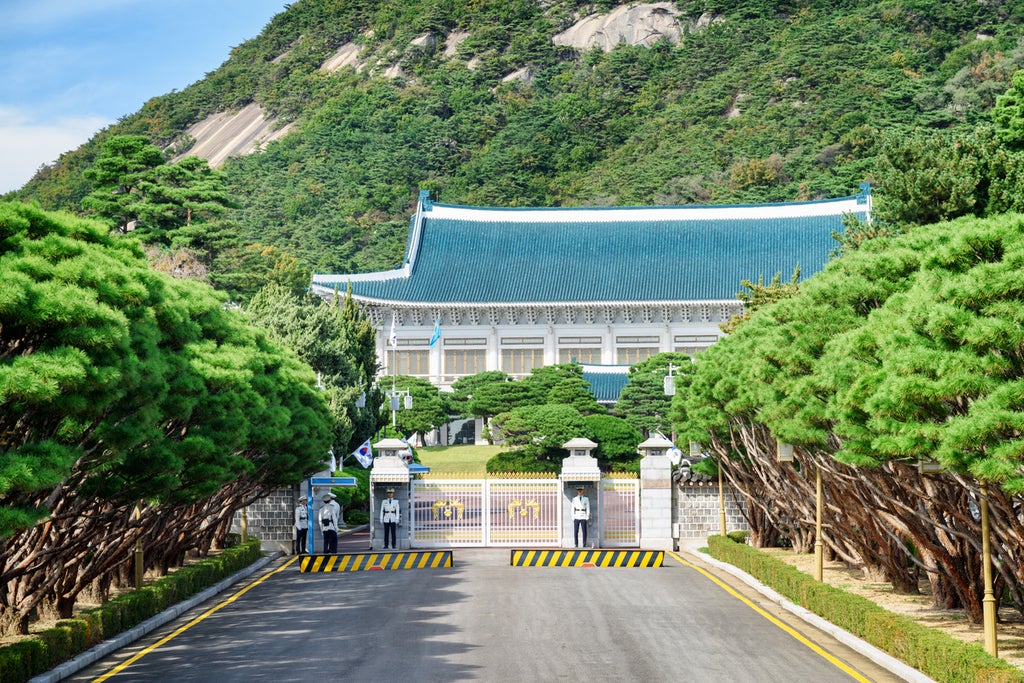
South Korea’s mysterious “Blue House” presidential palace is opening to the public for the first time in more than 75 years.
Cheong Wa Dae, better known as the Blue House due to its blue-tiled roof, was built in Seoul in 1939 and served as both home and offices to the South Korean president.
But in one of his first official acts, the new president Yoon Suk Yeol this month moved the site of the presidential headquarters and has opened the palace up to the public, with a maximum of 39,000 people a day allowed in.
The new presidential offices are around three kilometres away, in Seoul’s Yongsan District.
The Blue House has gone through multiple transformations over the years. Once the site of a royal garden, the Japanese built the official residence for their governors-general there during Tokyo’s colonial rule of the Korean Peninsula. After Korea was liberated from Japan in 1945, the U.S. military commander occupied the place until it became South Korea’s official presidential office and residence upon the country’s foundation in 1948.
At the new palace attraction, costumed guards act out royal parades and ceremonies for tourists.
“I feel grateful that the Blue House has opened to the public,” said a 61-year-old office worker, Lee Sang-woon, who was visiting the site.
“I am really happy to be here.”
Choi Jun Chae, 60, who runs a mill at a traditional market near the Blue House, was sorry to see the presidential office leave his neighborhood but also hopeful that the relocation would boost local businesses by bringing in more tourists.
“Under the (former President) Lee Myung-bak administration, there were lots of protests ... so it was really hard to commute to this area. Cars couldn’t move, so I had to walk,” Choi said.
Thousands of people have gathered near the Blue House in the past for mass rallies and marches. Nearby residents said they suffered from noise and traffic congestion.
“I hope that protests decrease and more people visit the area,” Yoo Sung-jong, head of a popular bakery in the neighborhood, said. “But (the president) was here for a long time, so it is a bit sad too.”
Additional reporting from agencies.







